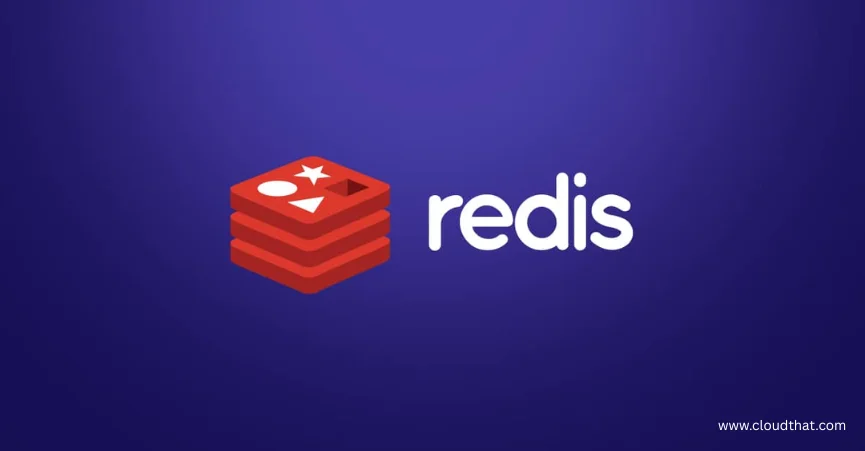|
Voiced by Amazon Polly |
Overview
Redis is a high-performance, in-memory data store widely used for caching, session management, real-time analytics, and message brokering. While Redis is fast and efficient, production-grade applications require high availability (HA) and secure communication.
Deploying Redis HA with mTLS is crucial for fintech, healthcare, e-commerce, and SaaS platforms, where downtime and data breaches can have a significant business impact.
Pioneers in Cloud Consulting & Migration Services
- Reduced infrastructural costs
- Accelerated application deployment
Key Features
High Availability (HA)
- Redis Sentinel monitors master and replica nodes, triggering failover in the event of node failure.
- Redis Cluster provides sharding for scalability and HA.
- Supports automatic promotion of replicas to master when needed.
Mutual TLS (mTLS)
- Encrypts data in transit between clients and Redis nodes.
- Authenticates both server and client to prevent unauthorized access.
- Works with standard PKI infrastructure and certificates.
Persistence and Replication
- Data can be persisted to disk using RDB snapshots or AOF logs.
- Replication ensures replicas have up-to-date copies of master data.
Monitoring and Observability
- Provides metrics on memory usage, command execution, replication lag, and connections.
- Integrates with Prometheus, Grafana, or Cloud Monitoring tools.
Scalability
- Horizontal scaling with Redis Cluster for sharding.
- Supports read scaling by distributing reads to replicas.
Steps to Implement Redis HA with Mutual TLS
Step 1: Provision Infrastructure
- Deploy VMs or containerized environments (Docker, Kubernetes, or OpenShift).
- Ensure network connectivity between nodes and clients.
Step 2: Deploy Redis Nodes
- Launch one master and two or more replicas for redundancy and failover.
- Example using Docker:
|
1 2 3 |
docker run -d --name redis-master redis:7 docker run -d --name redis-replica1 redis:7 docker run -d --name redis-replica2 redis:7 |
Step 3: Configure Redis Sentinel for HA
- The Sentinel monitors the master and triggers a failover automatically.
|
1 2 3 4 |
sentinel monitor mymaster <master-ip> 6379 2 sentinel down-after-milliseconds mymaster 5000 sentinel failover-timeout mymaster 10000 sentinel parallel-syncs mymaster 1 |
Step 4: Enable Mutual TLS
- Generate CA, server, and client certificates:
|
1 2 3 |
openssl req -new -x509 -days 365 -nodes -out ca.crt -keyout ca.key openssl req -newkey rsa:2048 -nodes -keyout redis.key -out redis.csr openssl x509 -req -in redis.csr -CA ca.crt -CAkey ca.key -CAcreateserial -out redis.crt |
- Configure Redis to use TLS:
|
1 2 3 4 5 6 |
tls-cert-file /etc/redis/redis.crt tls-key-file /etc/redis/redis.key tls-ca-cert-file /etc/redis/ca.crt tls-auth-clients yes port 0 tls-port 6379 |
Step 5: Configure Clients
- Use Redis clients that support TLS and provide client certificates:
|
1 2 3 4 5 6 7 8 9 |
import redis r = redis.StrictRedis( host='redis-server', port=6379, ssl=True, ssl_ca_certs='ca.crt', ssl_certfile='client.crt', ssl_keyfile='client.key' ) |
Step 6: Integrate Monitoring
- Collect metrics with Redis Exporter for Prometheus.
- Set up Grafana dashboards to visualize latency, memory usage, and replication lag.
Handle Failures & Monitoring
High Availability
- Sentinel automatically promotes a replica to master if the master fails.
- Clients are notified of the new master via Sentinel configuration.
Monitoring
- Track latency, memory usage, and commands processed per second.
- Monitor TLS handshake errors and failed connections.
- Integrate alerts using Prometheus Alertmanager or Cloud Monitoring.
Recovery
- Maintain persistent RDB snapshots and AOF logs for recovery.
- Test failover scenarios regularly to ensure HA configurations work as expected.
Use Cases
- Session Management
- Redis HA ensures user sessions are preserved even during failures.
- Real-Time Analytics
- High availability supports streaming data and analytics pipelines.
- Leaderboards & Gaming Applications
- Ensures low-latency and secure access for real-time rankings.
- E-Commerce Caching
- Reduce database load by securely caching product data and shopping carts.
- Secure Financial Transactions
- mTLS ensures encrypted and authenticated communication for sensitive data.
Conclusion
Redis HA with Mutual TLS provides a robust, secure, and resilient caching solution for modern applications. By combining automatic failover, encrypted communication, and persistent storage, organizations can ensure high availability, data integrity, and security for mission-critical workloads. Implementing Redis HA with mTLS is essential for fintech, healthcare, and e-commerce applications that require both performance and compliance.
Drop a query if you have any questions regarding Redis and we will get back to you quickly.
Empowering organizations to become ‘data driven’ enterprises with our Cloud experts.
- Reduced infrastructure costs
- Timely data-driven decisions
About CloudThat
CloudThat is an award-winning company and the first in India to offer cloud training and consulting services worldwide. As a Microsoft Solutions Partner, AWS Advanced Tier Training Partner, and Google Cloud Platform Partner, CloudThat has empowered over 850,000 professionals through 600+ cloud certifications winning global recognition for its training excellence including 20 MCT Trainers in Microsoft’s Global Top 100 and an impressive 12 awards in the last 8 years. CloudThat specializes in Cloud Migration, Data Platforms, DevOps, IoT, and cutting-edge technologies like Gen AI & AI/ML. It has delivered over 500 consulting projects for 250+ organizations in 30+ countries as it continues to empower professionals and enterprises to thrive in the digital-first world.
FAQs
1. What is Redis Sentinel, and why is it needed?
ANS: – Redis Sentinel monitors master nodes and triggers automatic failover if the master fails, ensuring high availability.
2. How does Mutual TLS improve security?
ANS: – mTLS authenticates both client and server and encrypts communication, preventing unauthorized access and data interception.
3. Can Redis Cluster work with mTLS?
ANS: – Yes, Redis Cluster nodes and clients can be configured with TLS certificates for encrypted communication.

WRITTEN BY Riyazuddin
Riyazuddin works as an Associate Architect – Infra, brings over 15+ years of experience in DevOps, System Design, Networking, and Programming. Skilled in AWS, Azure, Terraform, Docker, Kubernetes, Jenkins, Openshift, Ansible, and Python, he designs scalable, secure systems and drives automation through cloud-native architectures and IaC. Known for his analytical mindset and leadership, he mentors teams and delivers high-impact, enterprise-ready solutions aligned with business goals.


 Login
Login


 October 6, 2025
October 6, 2025 PREV
PREV











Comments